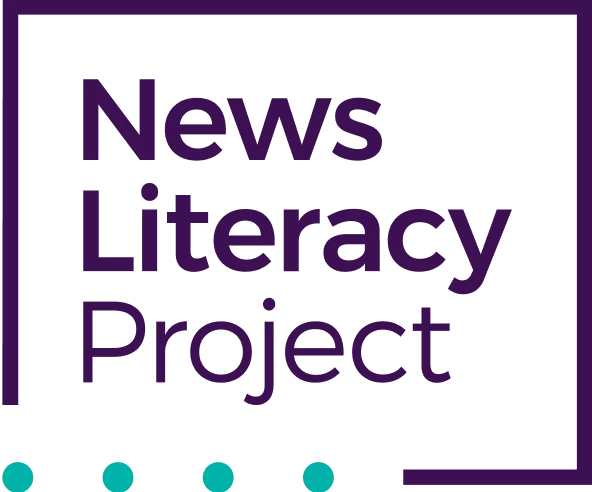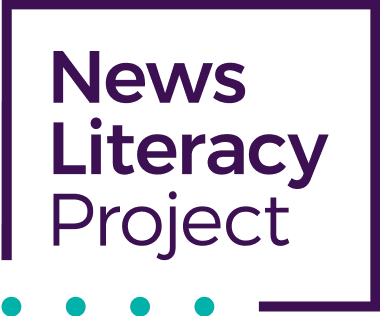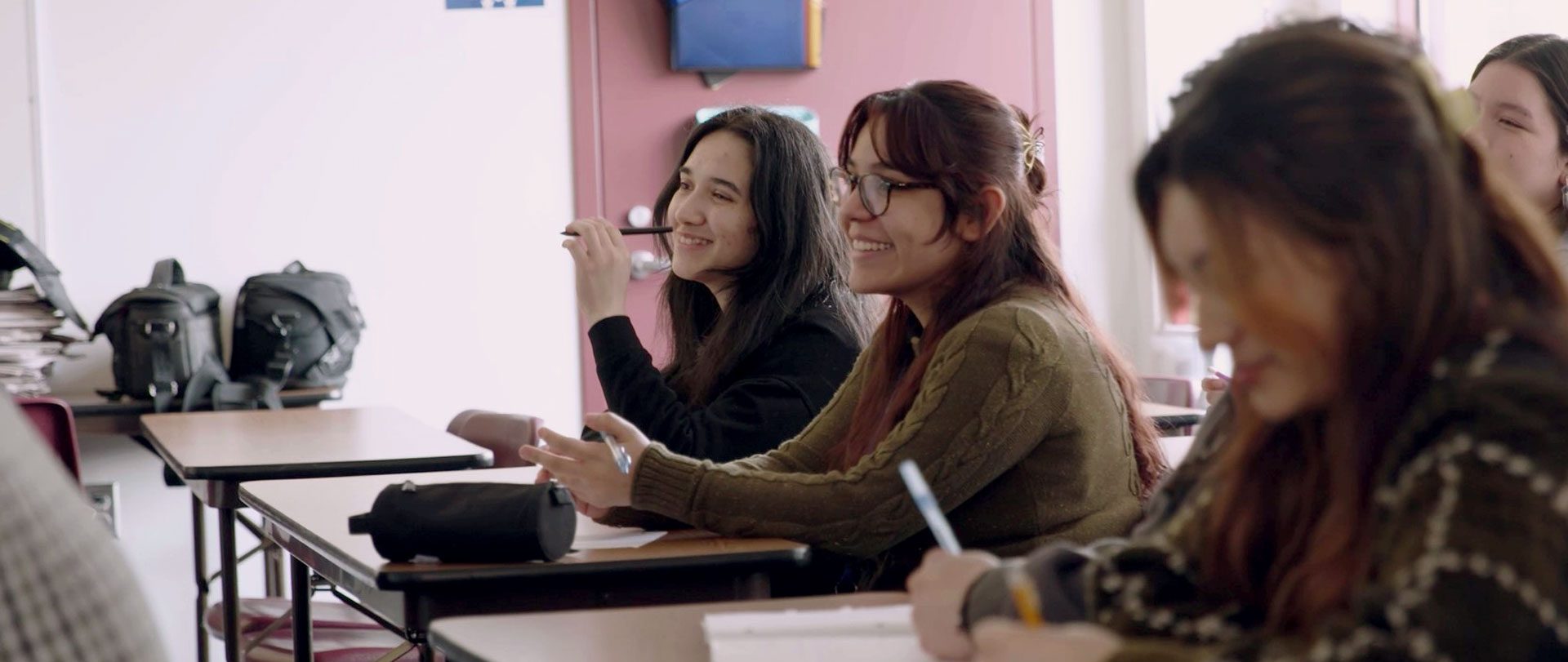Mission
NLP advances the development and teaching of news literacy in K-12 education.
Vision
All students in the United States are skilled in news literacy before they graduate from high school, preparing them to think critically and independently as active participants in society.
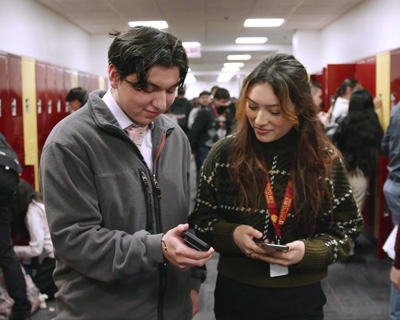

The challenge
It’s harder than ever to sort fact from fiction.
False and misleading information is everywhere — and it is causing real harm.
It divides communities, increases distrust and makes it harder to know what is factual. Current learning standards don’t always help students think critically, sort facts from falsehoods or find common ground across differences. And because most states don’t require news literacy education, students are left without the skills they need to succeed — in school, at work and in their daily lives.
Consider these results from our report News Literacy in America: A survey of teen information attitudes, habits and skills (2024)
- Nearly half of teens surveyed thought the press does more to harm democracy than to protect it.
- Eight in 10 teens surveyed reported seeing posts on social media that spread or promote conspiracy theories, and of those, 81% said they are inclined to believe one or more of them.
- Most teens struggled to distinguish between different types of information, such as news, advertisement, opinion and entertainment.
Our Solution
Teaching news literacy to all students can change this. Independent assessments of our Checkology® virtual classroom demonstrate the impact. After completing Checkology® lessons during the 2024-25 school year:
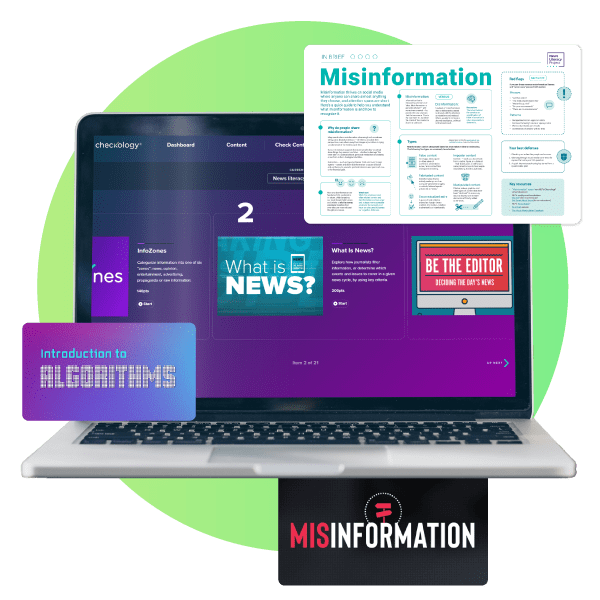
88%
of students
recognized when a social media post failed to provide credible evidence — a gain of 20 percentage points from before they started Checkology.
82%
of students
identified the more credible of two articles on the same topic from two different sources — a gain of 23 percentage points from before they started Checkology.
81%
of students
recognized that a free press is very important to a healthy democracy — a gain of 17 percentage points from before they started Checkology.
What educators say
During the 2024-25 school year:
97%
of educators
rated their overall impression of Checkology as either good or excellent.

91%
of educators
rated their students’ overall experience with Checkology as above average.

